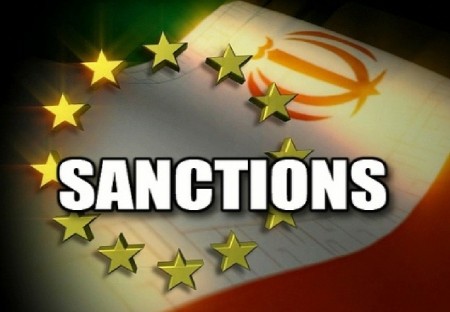Amid the discussion of whether the election of Hassan Rouhani will lead to “engagement” in the US-Iran relationship, a useful reminder from The Wall Street Journal:
Sanctions on Iran by the U.S. signed into law in January, and implemented and expanded via executive order in early June come into effect on Monday. The sanctions affect a vast array of interests engaging the Iranian economy.
The measures, signed in January as part of the National Defense Authorization Act, targets energy, shipping and shipbuilding sectors, barring the sale, supply or transfer of “significant” goods or services by non-US companies. They also restrict trade with Iran in precious metals, graphite, aluminum and steel, metallurgical coal, and software for integrating industrial processes.
But that’s not all. Only two weeks before the June election, the Obama Administration announces a series of four executive orders and Treasury steps ratcheting up sanctions. These include strict measures against Iran’s automobile sector, punishing anyone who offers assistance in the production of of light and heavy vehicles such as passenger cars, trucks, buses, minibuses, pick-up trucks, and motorcycles.
And, in the potentially most significant step, Washington is threatening to break the Iranian currency by sanctioning
any foreign financial institutions conducting “significant” transactions in the Rial. Senior administration officials have said this “will make the Rial useless outside of Iran”.
Iran Says UN Special Rapporteur On Human Rights In Iran Not Welcome In Tehran
In a totally unsurprising move, the secretary of Iran’s High Council, Mohammad Javad Larijani, said Sunday that the UN Special Rapporteur on Human Rights in Iran, Ahmed Shaheed, was not welcome to visit the country.
Mohammad Javad said Shaheed’s reports were biased because they were based on “anti-Iran websites”, and that his March report, which slammed Iran on a number of counts including over its Presidential election procedures, was “professionally flawed” because it only cited people who spoke on condition on anonymity.
Shaheed had expressed concern at the barring of women from the Presidential race.
“Ahmad Shaheed merely pieces together allegations [against Iran], while anyone can easily compile similar reports by searching the anti-Iran websites. His work is unjustified and totally invalid from a professional standpoint,” Mohammad Javad was quoted as saying.
The comments come after Shaheed likely upset Iran further earlier this month when he said the country’s Presidential election was “neither free nor fair as Tehran has silenced journalists and opposition leaders in the run up to [the] vote”.

